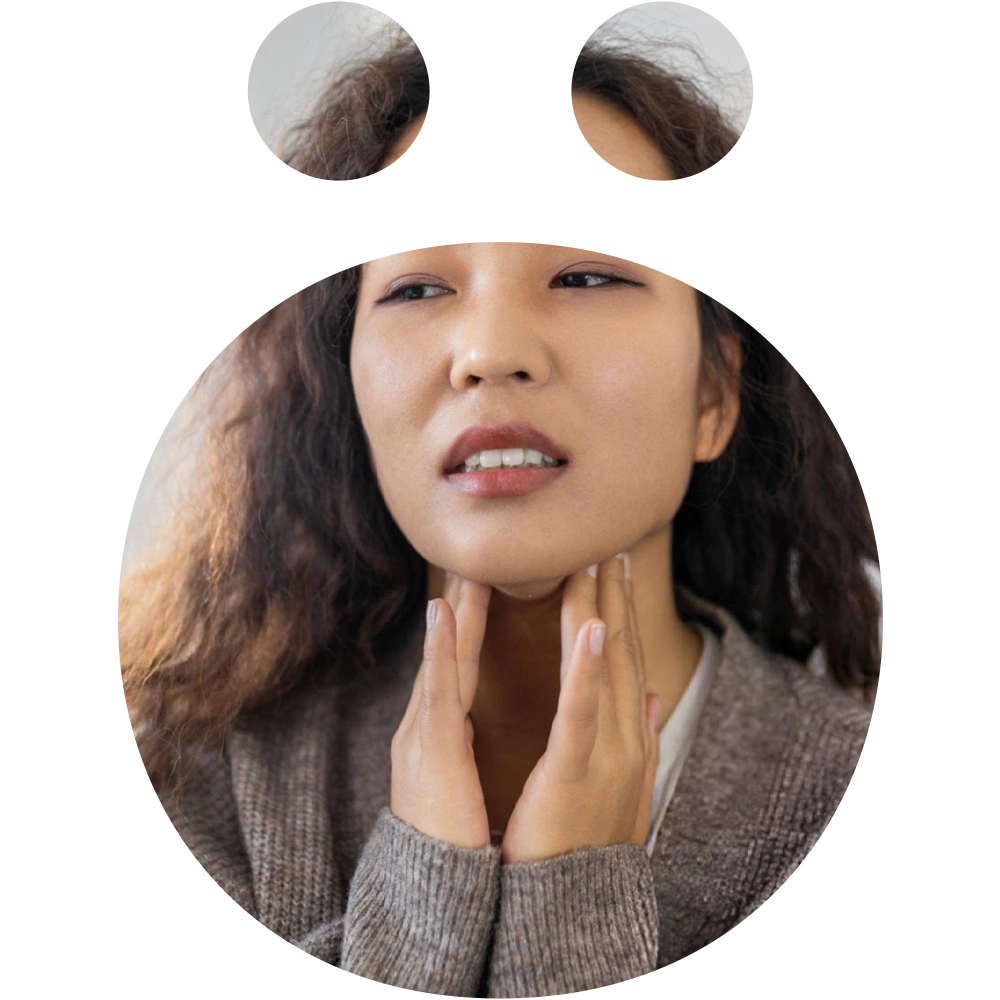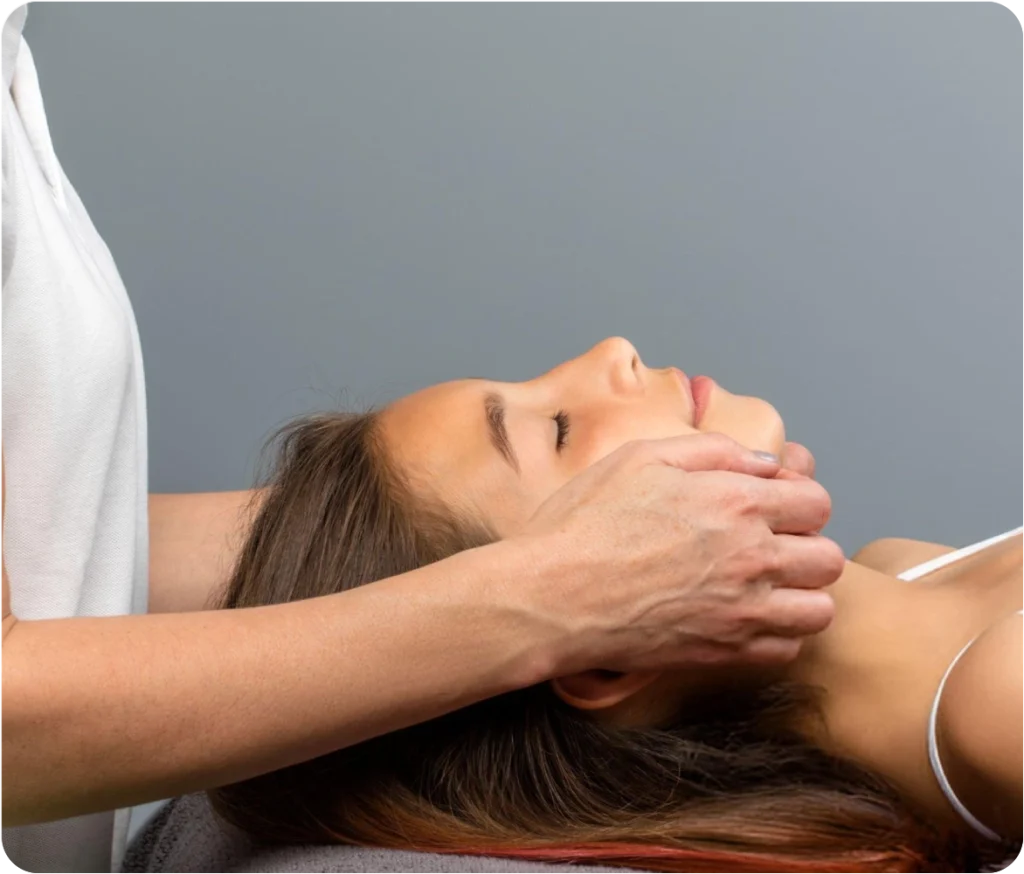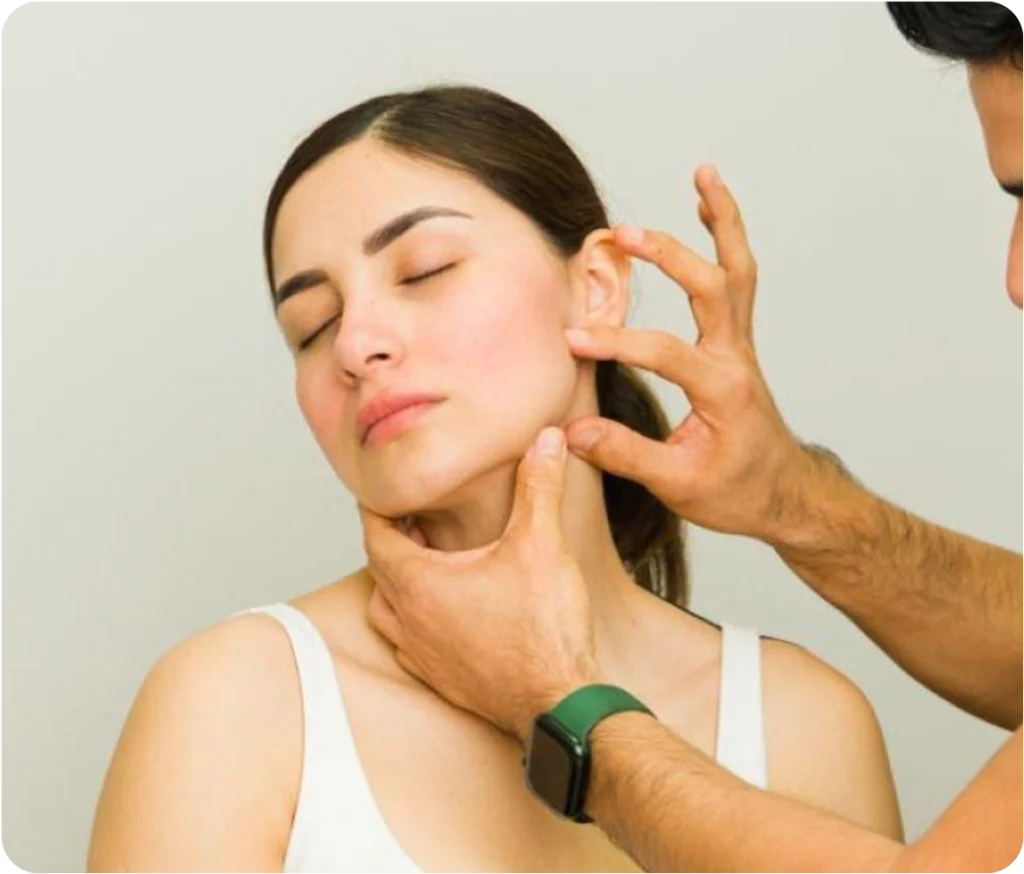Jaw Pain Physiotherapy Treatment
At Snö Clinics Abu Dhabi, we provide specialized physiotherapy for jaw pain, often linked to TMJ disorders. Our skilled team focuses on relieving discomfort, restoring jaw function, and enhancing your quality of life.
We conduct a thorough jaw assessment to understand your condition. This includes reviewing your medical history, examining jaw movement, evaluating neck alignment and posture, and analyzing muscle tension and joint condition. With these insights, we develop a personalized treatment plan to address your specific needs.


Common Jaw Conditions We Treat
Our Abu Dhabi physiotherapy clinic effectively manages a wide range of jaw-related conditions, including:
- Temporomandibular Joint (TMJ) disorders
- Jaw muscle tension and spasms
- Bruxism (teeth grinding)
- Jaw clicking or locking
- Postural-related jaw pain
- Stress-induced jaw discomfort
Tailored Treatment Modalities
At Snö Clinics, we offer a range of evidence-based treatments tailored to your specific condition and recovery goals
- Manual therapy and soft tissue mobilization
- Therapeutic exercises to improve jaw mobility and strength
- Relaxation techniques and stress management strategies
- Acupuncture for pain relief
- Ultrasound therapy
- Education on posture correction and ergonomic adjustments

Why Choose Us?
Superior Expertise, Proven Results
Our highly qualified physiotherapists in Abu Dhabi use evidence-based treatments tailored to your condition—whether it’s shoulder pain, sports injury, or post-surgical recovery.
Gentle, Personalized Care
We focus on gentle, hands-on techniques and customized rehabilitation programs that respect your pace, reduce discomfort, and promote lasting healing.
Trusted by the Community
With a strong reputation across Abu Dhabi, our patient-first approach, advanced technology, and flexible appointment options make us a trusted name in physiotherapy.
At Snö Clinics, we provide expert physiotherapy care using evidence-based treatments to help you recover faster and move better. Book a consultation with our physiotherapist to discuss your condition, set recovery goals, and find the most effective treatment plan for you.
- Frequently Asked Questions
How to fix lower back pain?
Fixing lower back pain often depends on the cause. In many cases, simple home remedies such as rest, applying ice or heat, gentle stretching, and maintaining good posture can bring relief. Regular exercise that strengthens the core and back muscles can also help prevent recurring back pain. However, if your back pain persists or worsens, consulting a doctor or physical therapist is the best step
What is the cause of back pain?
Back pain can be caused by several factors, including muscle strain, poor posture, herniated discs, arthritis, or even lifestyle habits like prolonged sitting. Sometimes, back pain may result from underlying medical conditions such as osteoporosis or spinal problems. Identifying the exact cause of back pain is important for proper treatment.
How do I know if my back pain is serious?
Most back pain is temporary and improves with self-care, but it can be serious if it is accompanied by symptoms like numbness, weakness in the legs, loss of bladder or bowel control, unexplained weight loss, or severe pain that doesn’t improve with rest. If your back pain follows a fall, injury, or continues for weeks, it’s important to seek medical advice immediately.
What is the best medicine for lower back pain?
The best medicine for lower back pain depends on the severity and underlying cause. Over-the-counter pain relievers like ibuprofen, acetaminophen, or muscle relaxants are often recommended for short-term relief. In some cases, doctors may prescribe stronger medications or anti-inflammatory drugs. Since back pain varies from person to person, it’s always best to consult a healthcare professional before starting any medication.
